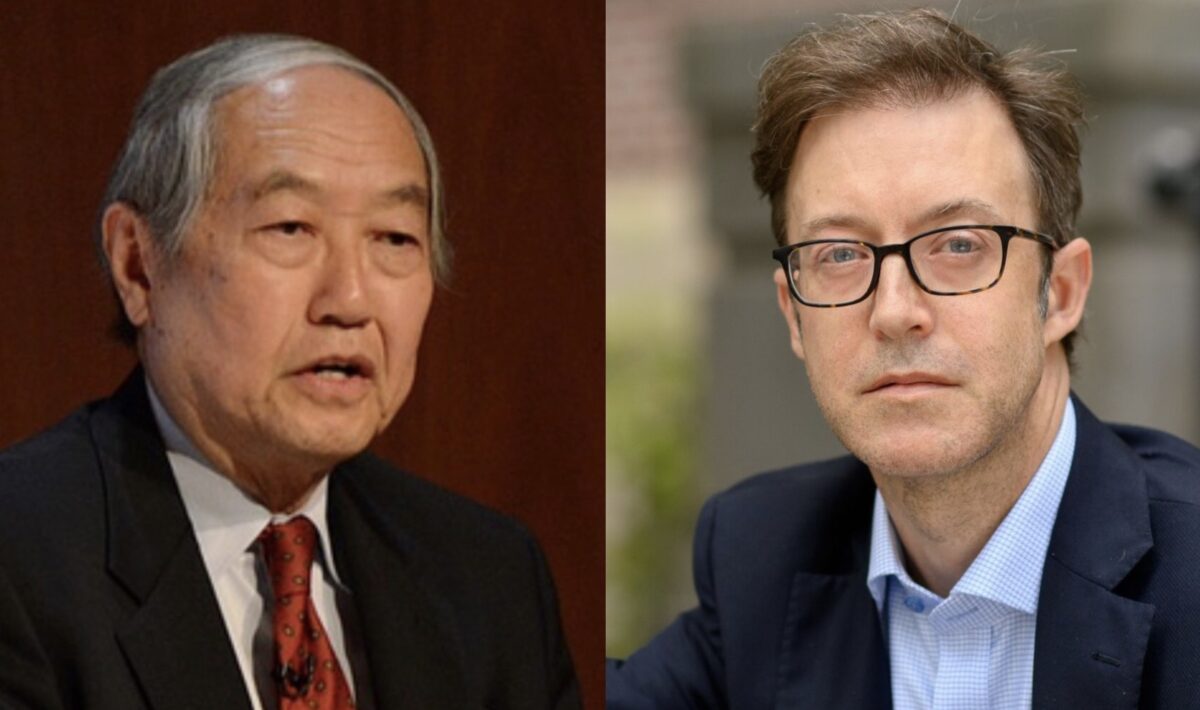JHC is honored to partner with the Japan Society of Greater Fairfield County again to explore the genesis of internment camps in America and the long road to reparations for this painful chapter in history. This is a free in-person event but pre-registration is required. Click here to register.
On February 18th, guests will meet Grant Ujifusa, a noted author and historian who is widely recognized for his instrumental role in the Japanese American redress movement of the 1980’s. Ujifusa, a 1965 graduate of Harvard College, received an M.A. in American History from Brandeis University and an ABT in American Civilization from Brown University. He is the founding editor and longtime co-author of The Almanac of American Politics, originally published in 1972 and still published today. The book has been described as “the bible of American politics.”
Born on January 4, 1942, Grant is a third generation Japanese American, “sansei” whose family first came to San Francisco in the early 20th century before moving to Wyoming in 1906 where his father worked on the Chicago Burlington Quincy Railroad Line. The Ujifusa family called northern Wyoming home before Heart Mountain or the other camps were established under the terms of Executive Order 9066. Ujifusa’s familiarity with the workings of Washington lawmaking made him an ideal strategist in the fight for the passage of HR 442, the Civil Liberties Act of 1988, which was ultimately signed by President Ronald Reagan on Aug. 10, 1988. The bill secured an apology and monetary reparations for loyal Americans who were forced by President Franklin Delano Roosevelt into prison camps during World War II.
Grant will speak with Prof. Kermit Roosevelt III, considered by many to be “the top scholar in the constitutional aspects of the internment.” Prof. Roosevelt will speak about the dimension of what happened and the two together will examine the politics behind getting redress done including how President Reagan’s mind was changed thanks to the life story of Nisei World War II hero Kaz Masuda.
For his effort on behalf of the bill, Ujifusa was made an honorary member of K Co. of the 442nd Regimental Combat Team. In 2012, he was awarded the Order of the Rising Sun, Gold, and Silver Rays, by the Government of Japan for his indispensable work to pass, enact and fund the Japanese American redress bill. He serves on the Board of the Japanese American National Memorial Foundation as well as the Board of Governors of the Japanese American National Museum. He was the Legislative Strategy Chair of the Legislative Education Committee of the Japanese American Citizens League from 1982 to 1992. He and his wife now reside outside of Philadelphia.
Photo credits – The Asia Society
_________________________
Kermit Roosevelt III is the David Berger Professor for the Administration of Justice at the University of Pennsylvania Carey Law School. Roosevelt works in a diverse range of fields, focusing on constitutional law and conflict of laws. He has published scholarly books in both fields. Conflict of Laws (Foundation Press, 2010) offers an accessible analytical overview of conflicts. The Myth of Judicial Activism: Making Sense of Supreme Court Decisions (Yale, 2006) sets out standards by which citizens can determine whether the Supreme Court is abusing its authority to interpret the Constitution.
He has published articles in the Virginia Law Review, the Michigan Law Review, and the Columbia Law Review, among others. He is also the author of two novels, In the Shadow of the Law (Farrar, Straus & Giroux, 2005) and Allegiance (Regan Arts, 2015). In 2014, he was selected by the American Law Institute as the Reporter for the Third Restatement of Conflict of Laws.
_________________________
The Japan Society of Greater Fairfield County (JSGFC) is a 501(c)(3) non-profit organization. They are a private small community-based membership organization dedicated to promoting Japanese arts and culture in the greater Fairfield County region. Their mission is to foster knowledge, strengthen connections, and enhance mutual understanding between the U.S. and Japan.
Jay Heritage Center (JHC) and JSGFC recently collaborated together and with Ikebana International of New York to present a Japanese flower design exhibit to the public. The two nonprofits also partnered with the Topaz Museum to showcase an internment camp painting exhibit by artist and teacher Koho Yamamoto this past September. READ MORE HERE.
